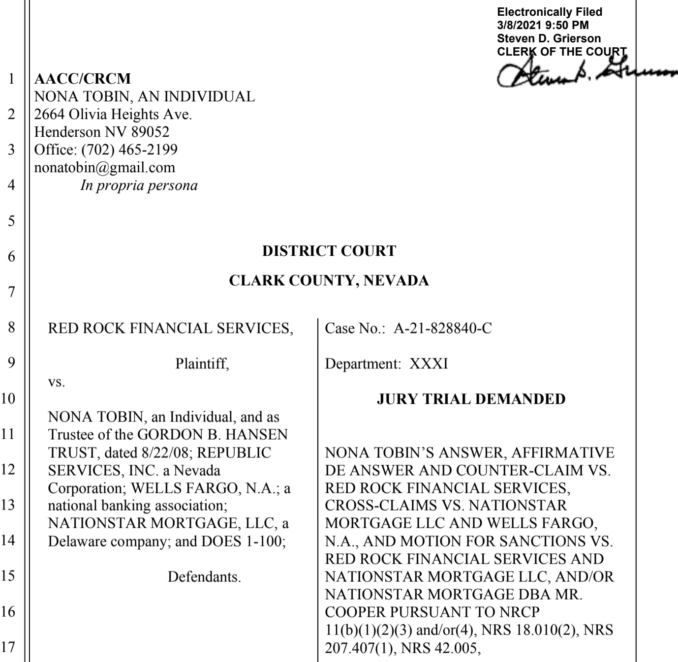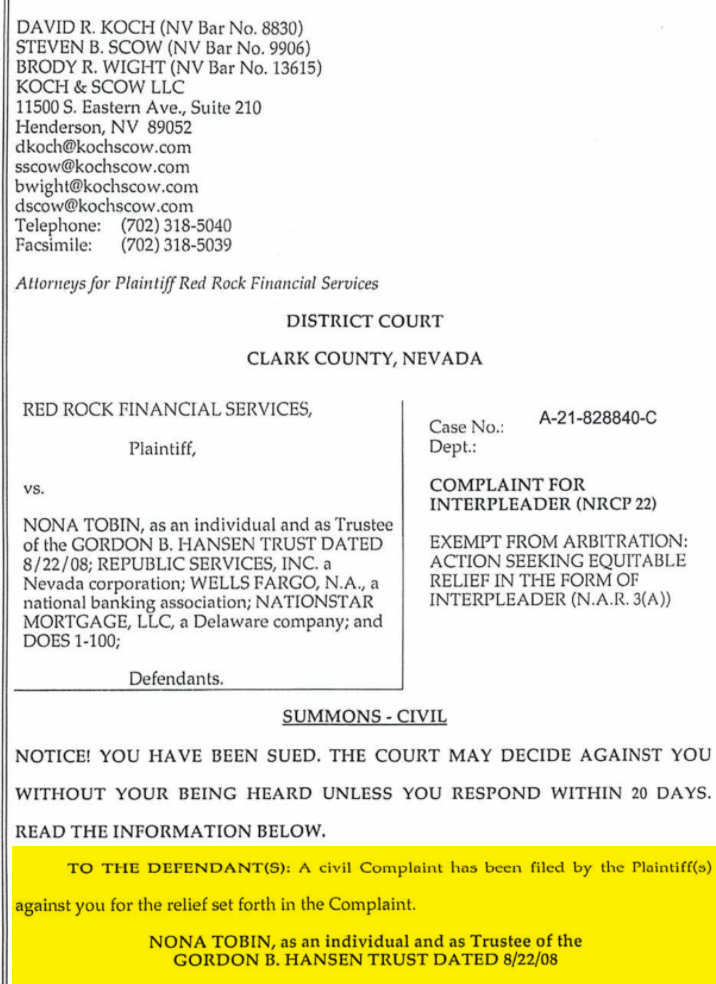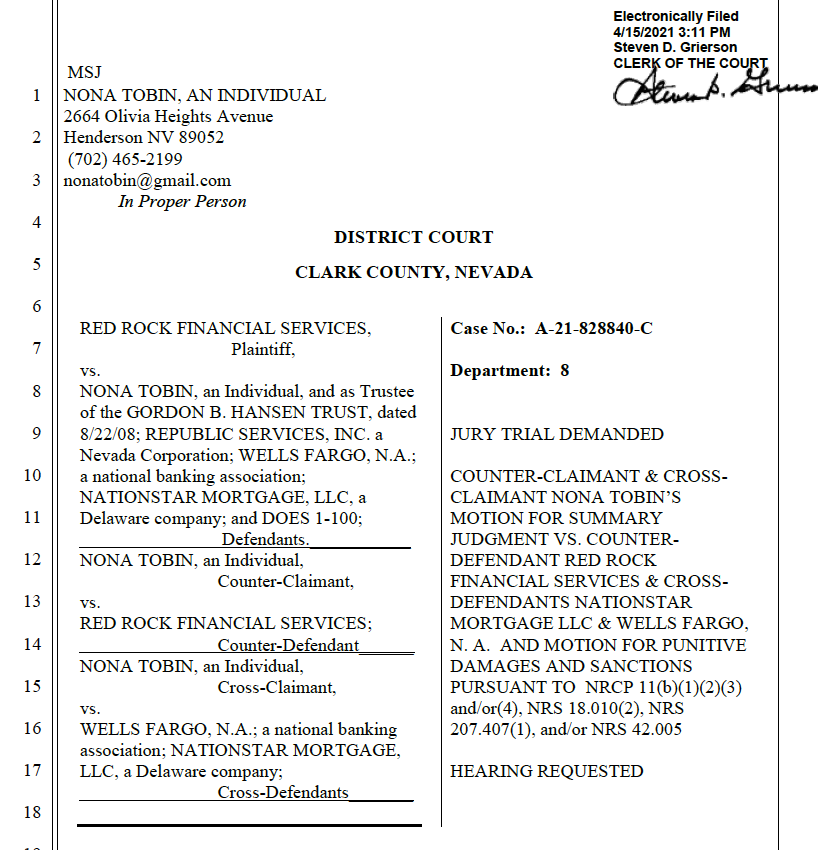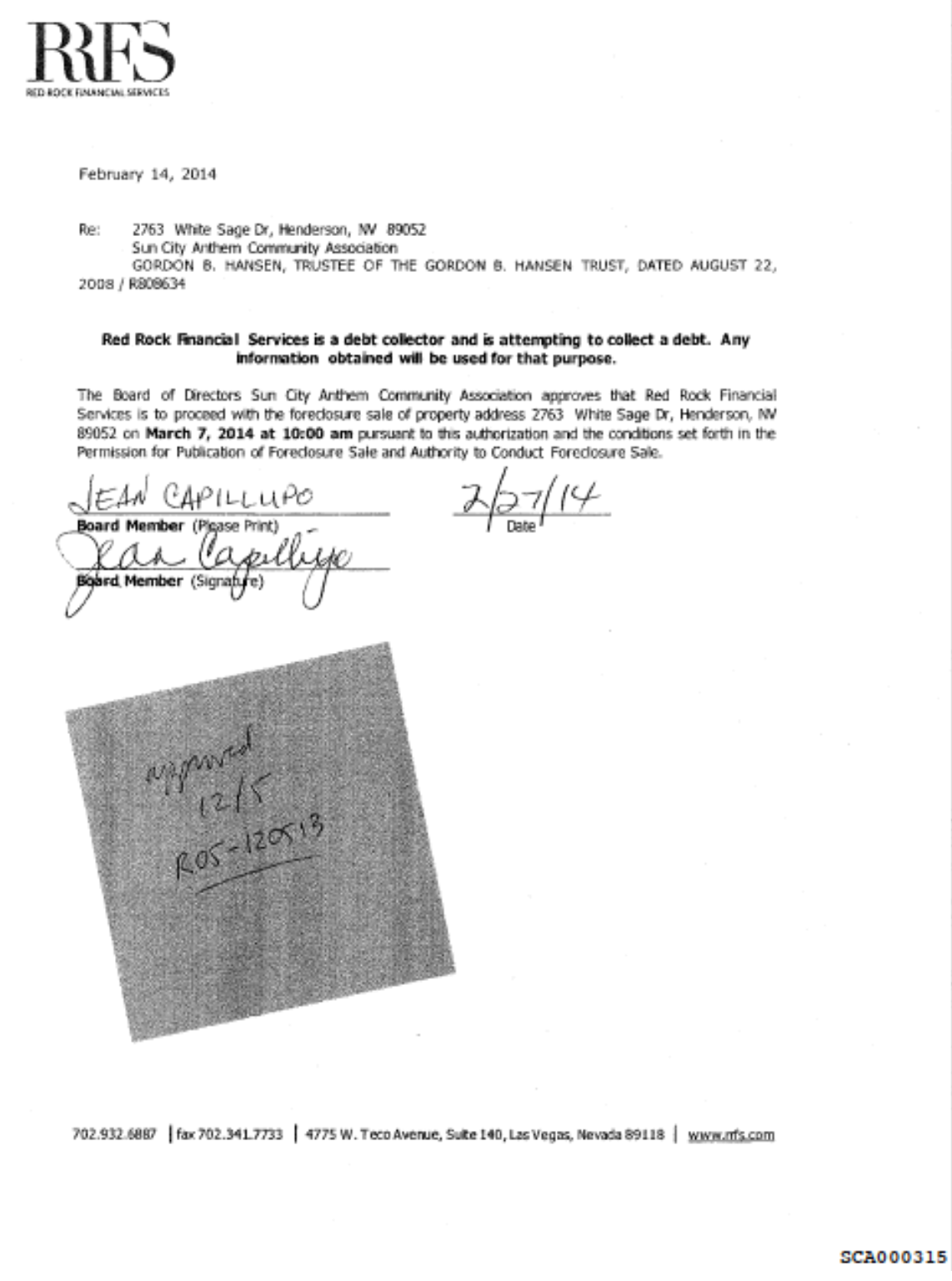Nona Tobin’s claims against Red Rock Financial Services
On 3/8/21, Nona Tobin filed an answer, affirmative defenses and counter-claims vs. Red Rock, and cross-claims against nationstar and wells Fargo. Link to NONA TOBIN’S
Owners should ALWAYS come first!
On 3/8/21, Nona Tobin filed an answer, affirmative defenses and counter-claims vs. Red Rock, and cross-claims against nationstar and wells Fargo. Link to NONA TOBIN’S

On 3/8/21 Nona Tobin filed an answer and counter-claim when Red Rock sued her over the money they stole from her in 2014. This blog

On 2/16/21, Red Rock Financial Services served a notice on Nona Tobin that Red Rock was suing her over the money Red Rock stole from

Links to PDFs of case file 2/16/21 summons Tobin served Red Rock interpleader complaint 2/17/21 AOS affidavit of service 3/8/21 Tobin AACC vs. Red Rock,
Sun City Anthem misrepresented the record Link to bookmarked SCA 176-643 Red Rock Foreclosure File disclosed by Sun City Anthem in 2018. SCA misrepresented the
EXCESSIVE, UNAUTHORIZED & UNEARNED “COLLECTION COSTS” = ABUSIVE & PREDATORY COLLECTION PRACTICES 12/31/11 Balance due Dec 31, 2011 was zero. See annotated Resident Transaction Report

12/5/13 Executive Session Agenda 12/5/13 Executive Session – Items related to the Board enforcing the governing documents “6. ACCOUNT REQUESTS, APPEALS & HEARINGS (Action May
2012 Board meeting agendas & minutes Link to 2012 minutes 001-145 2012 Specific SCA Board discussion of enforcement actions taken in secret 9/27/12 Minutes At today’s
Elements of Quiet Title In Nevada, the elements for a claim of quiet title are: 1. Action may be brought by any person against another
NRS Chapter 30 Declaratory Judgments NRS 30.030 Scope. Courts of record within their respective jurisdictions shall have power to declare rights, status and other legal relations